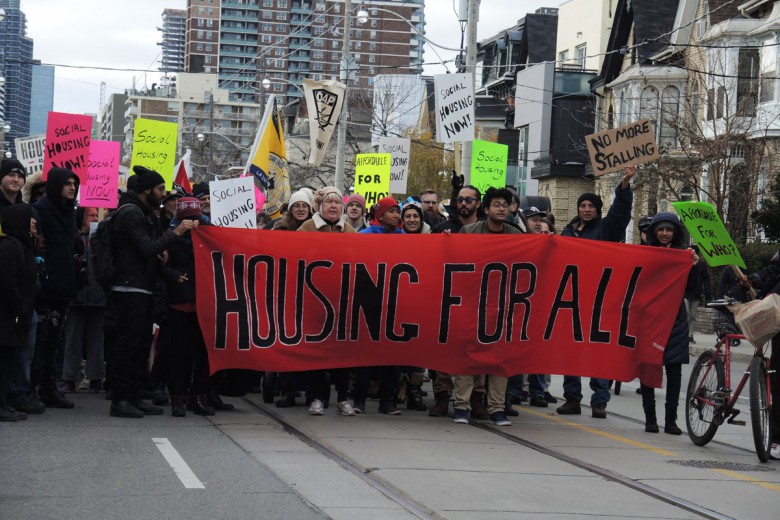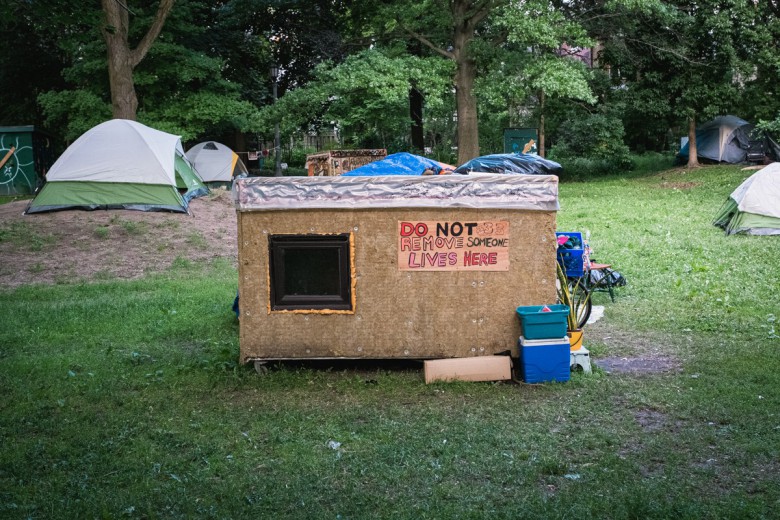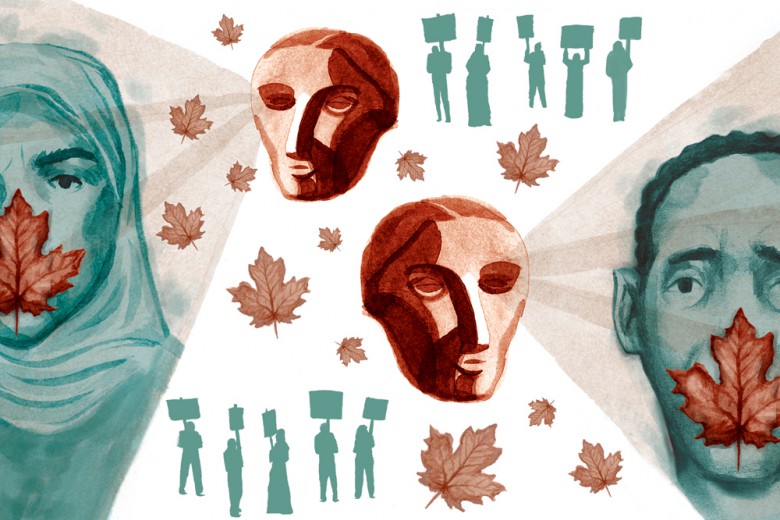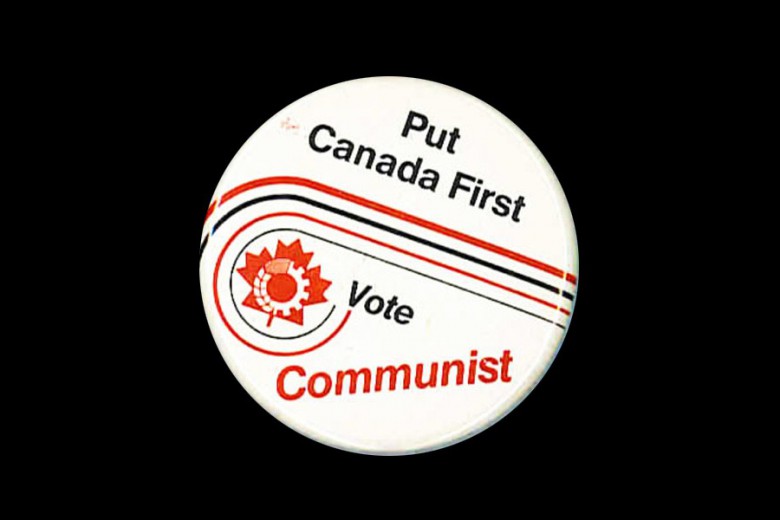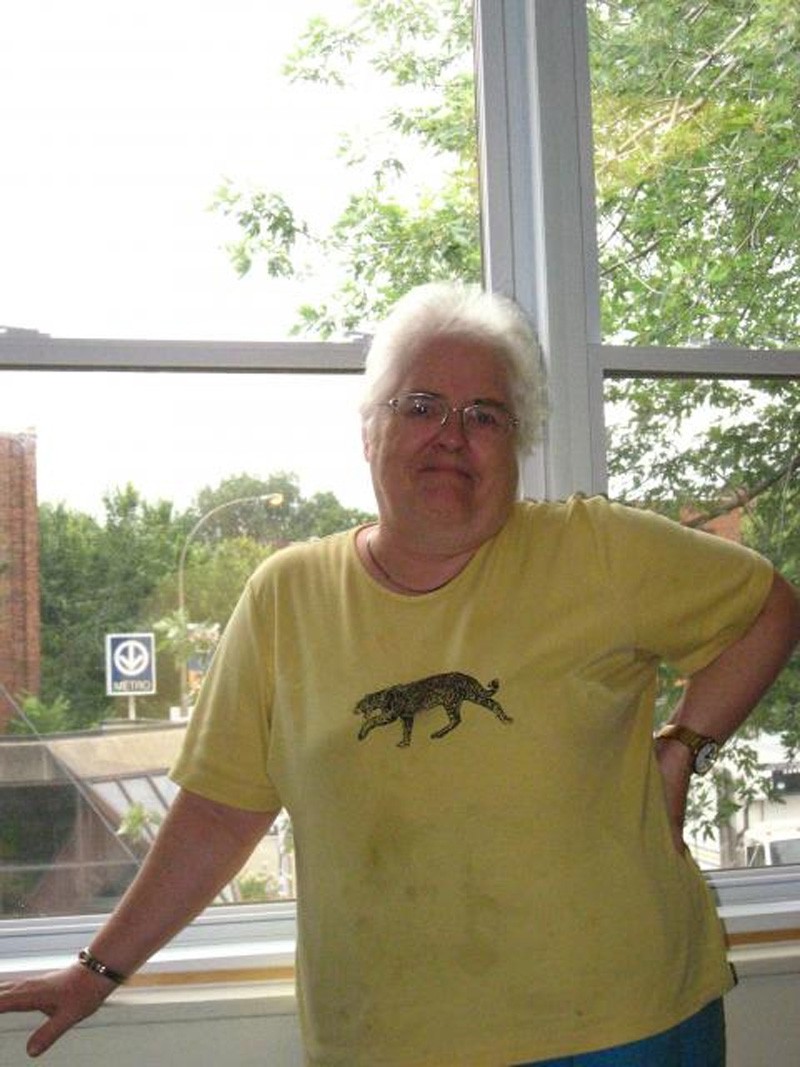
The province of Québec is in the midst of a major swing to the right, as the results of the March 2007 provincial election indicate. The centre-right Liberals of Jean Charest managed to hold on to power with a minority government, and the right-wing Action Démocratique du Québec (ADQ) made significant gains to form the official opposition. While student, labour, and environmental groups are bracing themselves for the anticipated cutbacks, welfare recipients—already reeling from more than a decade of frozen benefits—are wondering how much harder they can be squeezed.
This new provincial balance of power certainly offers little hope for a more enlightened approach to social assistance than that of the previous Liberal majority. Shortly after being sworn in as the new Minister of Employment and Social Solidarity, Sam Hamad declared that welfare recipients “have everything,” and that those “who aren’t on disability payments are not interested in going to work.” To make matters worse, he used the French term “B.S.” (bien-être social, which has a similar connotation to “welfare bum”), to describe welfare recipients.
Many welfare-rights groups, thoroughly angered by Hamad’s comments, announced that there would be no dialogue with him until he retracted his statements. Hamad did publicly apologize the next day, but the sentiments he expressed likely reflect a broadly held and dangerous attitude toward welfare recipients.
Of Québec’s 500,000 welfare recipients, 263,000 are categorized as “able to work,” and are entitled to a welfare cheque of $572 per month—$280 less than those deemed unable to work by the system. Considering that the average rent for a one-bedroom apartment in Montréal is $579 per month, a monthly metro pass is $65, and food is at least $100 per month, making ends meet on a welfare cheque is about the hardest job one could find in the province.
Do welfare recipients really have everything, as Minister Hamad claims? Far from it. In fact, for many in the province, being on welfare is a constant struggle. As one member of the Organisation Populaire des Droits Sociaux, a welfare-rights organization based in Montréal’s low-income east end, puts it, “every day of our lives is dedicated to surviving.”
With rent, public transportation, and the general cost of living all on the rise, one would think that welfare rates would rise as well. However, in January 2007, then-Minister of Employment and Social Solidarity Michelle Courchesne raised the welfare rates by only 1.01 per cent. Because the Québec government has only partially indexed the welfare rates to the cost of inflation in recent years, recipients effectively receive less and less money each year. It has been estimated by Québec Solidaire, a social democratic political party in Québec, that if welfare rates had been indexed over the last decade to meet the rising cost of living, the rate for a single person classified as “able to work” would be closer to $850 per month.
The right-wing notion that welfare recipients are not interested in working is a sweeping generalization that is very far from most people’s lived realities. For many people, the struggle of trying to survive on a welfare cheque is a full-time occupation. Diane Davies, a 61-year-old Montréaler and anti-poverty activist, has been on welfare since 1972. She tried applying for different job openings in Laval and Montréal for years, to no avail. “Who wants to hire me at my age, with not too many skills?” she asks.
Furthermore, the perception of the job market as accessible and prosperous is not always accurate. Georges (who wouldn’t give his full name for fear of repercussions from the welfare office) sees things differently. “The job market, in my opinion, is unpredictable, small, and dangerous,” he says. In the mid-1990s, Georges had an accident which has prevented him from working since. “Mr. Hamad wanted to laugh at us, and he succeeded because most people are uninformed about the situation of welfare.”
This April, a news story broke that shone a light on the impossible situation in which many welfare recipients find themselves. Clairandrée Cauchy wrote an article in Le Devoir on April 18 documenting the cases of several welfare recipients who had their cheques cut because their agents found out that they were receiving financial help from their friends. In one particularly shocking case, a man on “temporary constraints to work” welfare received a cut in his cheque because his mother was buying him $35 worth of groceries every two weeks.
In response to the Le Devoir story, Claude Morin, spokesperson for the Ministry of Employment, explained the distinction made between help received by welfare recipients from friends and that received from charitable organizations such as food banks or shelters. While groceries and other necessities given by friends are considered income to be declared and deducted from the amount of welfare received, the same things given by charities are considered “punctual aid” and are therefore legal, according to Morin.
This institutionalization of charity and suppression of mutual support serves only to tighten the control over welfare recipients’ poverty. Those who would prefer to receive help from their families and friends to eat, rather than lining up in soup kitchens, are slapped firmly on the wrist. Welfare thus becomes more of a punitive measure aimed at driving recipients back into the labour force, instead of a safety net providing people in poverty with access to sufficient resources to meet their basic human rights.
Faced with a public outcry, Hamad introduced changes to the welfare law that came into effect on September 1, 2007, in order to allow in-kind donations to be given to recipients from their friends and families. But the Front Commun des Personnes Assistées Sociales du Québec (FCPASQ), a coalition of 30 welfare-rights organizations in Québec, insists that the reforms don’t go far enough. In a document submitted to the Ministry of Employment on July 20, they urge that donations should be receivable in cash as well as in kind.
Minute changes to the welfare law such as those proposed by the FCPASQ would no doubt have positive impacts on the lives of welfare recipients, but they do nothing to address the fundamental problem that surviving on welfare alone is all but impossible. There is a long road ahead in the struggle to raise the rates to a livable level, and many people on welfare are bracing themselves to travel it. “Look at how long we suffered without access to free medication,” says Diane Davies. “Right now we’re getting free medication. Next time it might be something else, and I don’t know what, but no matter what it is, we’re gonna fight. That’s all I know how to do now. And fight I’ll do, even if it’s until my last breath.”
Aaron Lakoff is an independent journalist and welfare-rights community organizer in Montréal. He has filed reports from Israel/Palestine, Haiti, Mexico, and across North America.


